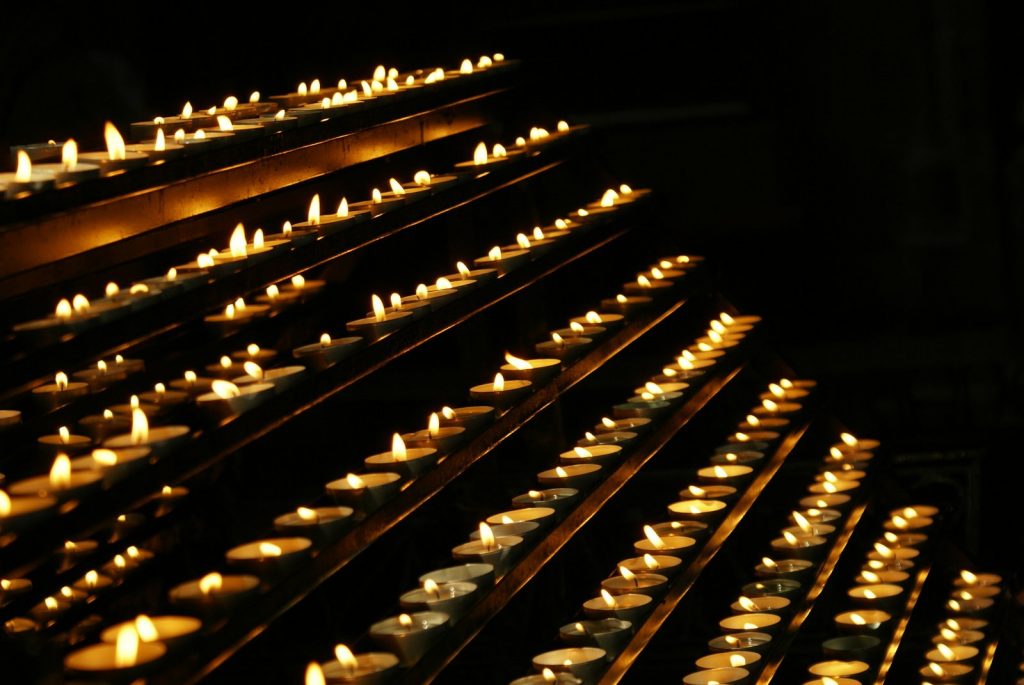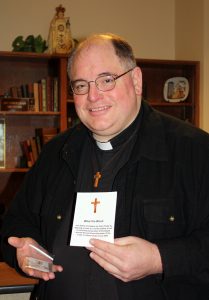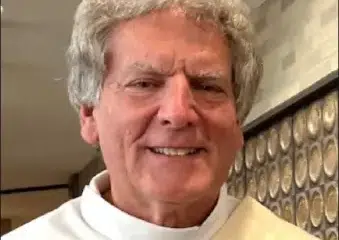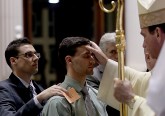Be not afraid: A priest shares his thoughts on the gift of confession

Father John “Rob” Jack, who teaches systematic theology at the Athenaeum of Ohio/Mount St. Mary’s Seminary of the West, is well known for encouraging and hearing confession at every parish he travels to and in his many parish missions, recorded talks, and programs for Sacred Heart Radio. He shared the following thoughts about the sacrament of reconciliation, popularly referred to as confession, and its importance for the soul.
Many people are bogged down with many hurts and worries and cares and anxieties. This is seen in the number of people taking anti-depressants and seeing counselors. I see the lives of the people in church and the weights they seem to be carrying and their sorrowful expressions, and I wonder why they do not come to confession.
I have met some Catholic counselors who have actually told clients that they ought to go to confession as a means to help them through their difficulties. These counselors have told me how much the sacrament helps. There are some things that only God can heal and forgive. When people leave the confessional, they leave their sins behind. They can start anew. They can be wiser so that they don’t fall into the trap again.

Some parishes have started have confession times in the evenings during the week to make the sacrament more available. I think this is a good practice and it may help even more people go. We cannot ever be too busy to go to confession. That is like saying that on earth I am too preoccupied with earthly things to even think about the fact that because I have an immortal soul, my life needs to be a preparation for Heaven.
The reality is that we can choose to be separated from God forever in hell because of the evil things we have done, and because we have failed to ever reconcile ourselves to God and others. God has given us every opportunity to go to Heaven, but if we do not make use of these opportunities, then we will have no one but ourselves to blame.
A common hurdle for people is worry about what the priest will think if they have not been to confession in a long time. I am happy that God’s grace has finally pushed them into coming. Better late than never! Things build up in a person’s life and they need to get them out, and there is no place better to do this than confession. If they don’t remember how to confess, the priest will help the person along the way by leading them through the sacrament.
The names “confession” and “reconciliation” are both good ones for the sacrament, because in order to be reconciled to God, we must confess to him what we have done to offend his love and the love of our neighbor. The priest stands as the person of Christ, who mediates him for the penitent. It is important for the penitent to speak his sins to the priest, because speaking them out loud brings the sin out in the open, where its reality and seriousness and be seen both by the penitent and the confessor.
It was described by a priest to me once in this way: “When you go to the doctor, you have to tell him what is hurting. Only then can the doctor supply the appropriate medicine to cure the ailment.”
Here are two things I encourage people who come to confession to do, especially if they have not been going regularly or for a long time:
1. Get a good copy of an examination of conscience and study it before you go to see the priest so you can be aware of your faults. People have lost the art of the Examen, in which they take the time to look at their lives in light of the Ten Commandments to see how they have failed God, themselves, and others. Sometimes we do it in small ways, but if we do enough small things they begin to add up to big things, mortal sins. Some parishes have them, and have even placed them in their bulletins. Versions for adults and children can also be found online.
If you forget to say a sin and it is venial, it is forgiven by the sacrament. If it is a mortal sin, it needs to be confessed the next time you go, which should be before you receive holy Communion again.
2. Do your penance before the Blessed Sacrament before you leave the hurch. I know that some people come and confess and immediately leave, but I think it is a sign of a contrite and grateful heart if the penitent, after confession; goes before the holy Eucharist to thank God for his mercy and say the prayers given to them for penance. We should not rush out. God may still give us more of his gifts during this time.
This article originally appeared in the February 2019 edition of The Catholic Telegraph













